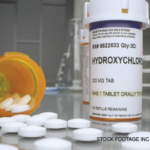A propensity score was utilized to adjust for the confounder that patients treated with HCQ would likely have milder disease and better outcomes than those not treated with HCQ. Applying the propensity score to the multivariate analysis, the protective effect of HCQ on survival remained significant.
In Ruiz-Irastorza et al., only 8% of the cohort was lost to follow-up, whereas in the LUMINA cohort, 36% was lost to follow-up in five years, perhaps reflecting the mobility of U.S. patients. Nevertheless, Dr. Alarcon’s group demonstrated beneficial effects of HCQ on the survival of the remaining cohort. Looking at the causes of death in the LUMINA cohort, there was no difference between the case and control group. This finding is at variance with that of the Spanish group, where no patient treated with anti-malarials died of cardiovascular complications. Similar protective effects were recently reported on behalf of Grupo Latino Americano de Estudio de Lupus at the 2007 PANLAR meeting.
Both studies make a strong case for prescribing HCQ to virtually all SLE patients. Even in patients with more severe disease who require heavy-hitting immunosuppressive agents, HCQ appears beneficial.2 So should HCQ “be in the water” of all SLE patients? Clearly, the evidence seems to indicate that HCQ has substantial and varied effects on health. Furthermore, HCQ appears to be safe in pregnancy and protective against flares during pregnancy.3
The mechanism for HCQ’s protective effect on disease activity and survival is unknown and can be difficult to explain. For my patients, I emphasize that anti-malarials “modulate” the immune system, but may also have anti-inflammatory, anti-thrombotic, anti-hyperlipidemic, and perhaps anti-hyperglycemic effects as well. As with any medication, adverse reactions can occur. The one most frequently screened for is retinal toxicity, but allergic reactions, neuromyopathy, and cardiac complications can also occur. For now, I will continue to advocate the virtues of a relatively cheap medication with few side effects that has long-term beneficial effects for SLE patients.
References
- Ruiz-Irastorza G, Egurbide M-V, Pijoan J-I, et al. Effect of anti-malarials on thrombosis and survival in patients with SLE. Lupus. 2006;15;577-583.
- Kasitanon N, Fine DM, Haas M, Magder LS, Petri M. Hydroxychloroquine use predicts complete renal remission within 12 months among patients treated with mycophenolate mofetil therapy for membranous lupus nephritis. Lupus. 2006;15:366-370.
- Clowse ME, et al. Hydroxychloroquine in lupus pregnancy. Arthritis Rheum. 2006;54:3640-3647.



